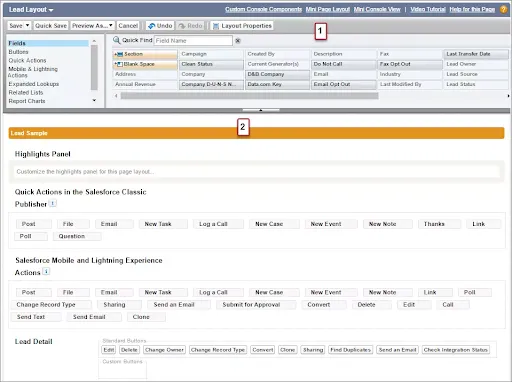Why Business Automation is Crucial for Growth
Organizations face increasing pressure to deliver exceptional results while managing limited resources. Business automation has become an essential strategy for companies seeking sustainable growth without a commensurate increase in operating costs.

Organizations face increasing pressure to deliver exceptional results while managing limited resources. Business automation has become an essential strategy for companies seeking sustainable growth without a commensurate increase in operating costs.
From streamlining back-office operations to enhancing customer interactions, automation creates scalable systems that support expansion while improving efficiency and consistency. This article explores the fundamental ways automation contributes to business growth and how organizations can leverage these technologies effectively.
How Business Process Automation Drives Operational Excellence
Business process automation transforms how organizations handle routine tasks and workflows, creating significant efficiency gains while reducing operational costs. By systematizing repetitive activities, companies eliminate productivity bottlenecks that typically constrain growth.
workflow automation delivers benefits across various business functions:
- Standardizing approval processes to eliminate delays
- Automating document generation and distribution
- Streamlining employee onboarding procedures
- Systematizing inventory management and order processing
- Coordinating project management tasks and deadlines
Beyond efficiency gains, automation substantially improves accuracy and compliance. Manual processes inevitably introduce human error, while automated systems execute processes consistently each time, ensuring reliable outputs that meet quality and regulatory requirements.
For companies planning expansion, automation in business operations provides the foundation for managing increased complexity without sacrificing performance or control.
Cost Reduction and Efficiency Through Automation
While growth typically requires investment, automation delivers substantial cost efficiency that improves profitability throughout expansion phases. These savings come from multiple sources, including reduced labor costs, minimized errors, and optimized resource allocation.
The business automation benefits extend beyond simple headcount reduction:
- Decreased processing costs for routine transactions
- Reduced error correction and rework expenses
- Lower compliance and audit preparation costs
- Minimized opportunity costs from delayed decisions
- Optimized resource utilization across departments
For small business automation presents particularly compelling economics. These organizations typically lack the scale advantages of larger competitors, making operational efficiency essential for competitive positioning. Targeted automation enables small businesses to achieve enterprise-level operational excellence without corresponding overhead costs.
Enhancing Customer Experience Through Automation
In today's customer-centric business environment, meeting evolving expectations for service quality presents significant challenges for growing organizations. Automation in customer service creates scalable systems that maintain or enhance experience quality during expansion phases.
Automation enhances customer experiences through multiple mechanisms:
- Providing instant responses to common inquiries
- Ensuring consistent follow-up throughout the customer journey
- Delivering personalized communication based on customer data
- Streamlining purchase and fulfillment processes
- Enabling proactive service notification and problem resolution
Marketing automation further enhances customer relationships by ensuring timely, relevant communication throughout the buying journey. These systems enable personalized engagement at scale—a capability previously available only to enterprises with substantial marketing resources.
The real power emerges when customer-facing automation integrates with operational systems to create seamless experiences. This integration eliminates the service gaps that often occur between departments during growth phases.
Data-Driven Decision Making Through Automation
Growth requires increasingly complex decisions with higher stakes. Business automation delivers powerful analytics capabilities that transform data into actionable insights, enabling more effective strategic and tactical decision-making.
Automated analytics enhance decision quality through:
- Consolidating data from disparate systems into unified dashboards
- Identifying trends and patterns beyond human analytical capacity
- Generating alerts when metrics deviate from expected ranges
- Providing predictive insights based on historical patterns
- Enabling scenario modeling for strategic planning
These capabilities transform decision-making from intuition-based to evidence-driven, reducing risk during expansion initiatives. Leaders can identify emerging opportunities and challenges early, adjusting strategies before problems escalate.
CRM automation plays a particularly valuable role in growth-oriented decision making. These systems aggregate customer interaction data across touchpoints, creating comprehensive relationship visibility that informs product development, service enhancement, and marketing strategies.
Types of Automation for Different Business Functions
Successful automation strategies target specific business functions with appropriate technologies rather than pursuing generic "automation" as an abstract goal.
Marketing automation transforms how businesses attract and engage customers. These platforms automate email campaigns, social media scheduling, lead scoring, and campaign analytics. For growth-oriented companies, these tools enable marketing activities to scale efficiently without corresponding staffing increases.
In sales functions, automated tools streamline prospecting, opportunity management, and customer communication. Our Sales Solution helps organizations identify and implement the most valuable sales automation opportunities for their specific business model.
Operational areas benefit from process-specific automation solutions:
- Finance departments leverage automated accounts payable/receivable systems
- HR teams implement applicant tracking and onboarding automation
- Operations groups deploy inventory management systems
- Customer service departments utilize case routing and knowledge bases
AI automation business applications represent the latest evolution in this domain, using machine learning to enhance automation capabilities. While traditional automation excels at structured, rule-based tasks, AI extends these capabilities to more complex, judgment-based activities.
Implementing an Effective Automation Strategy
While automation offers compelling benefits, successful implementation requires methodical planning and execution. Rushing deployment without adequate preparation typically creates resistance and disappointing results.
Key steps in developing an effective automation strategy include:
- Document existing workflows and identify inefficiencies
- Define specific, measurable objectives for automation initiatives
- Evaluate technology options based on requirements
- Develop implementation roadmaps with clear milestones
- Establish change management plans to address adoption challenges
Successful automation requires careful attention to employee concerns and training needs. At Addax, we emphasize comprehensive change management as an essential component of effective automation implementation.
For many organizations, a phased approach to automation yields better results than attempting comprehensive transformation simultaneously. This approach allows teams to develop automation expertise while delivering incremental business benefits.
Conclusion
Why business automation is important has become increasingly clear as organizations navigate competitive markets and growth challenges. The ability to scale operations, enhance customer experiences, and optimize costs simultaneously provides powerful advantages that directly support sustainable expansion.
Beyond operational benefits, automation creates organizational agility that enables rapid response to market changes and emerging opportunities. Companies with mature automation capabilities can quickly adjust processes and implement new strategies without the friction that typically accompanies change initiatives.
For businesses contemplating growth initiatives, automation provides essential infrastructure that supports expansion without corresponding increases in complexity and overhead. These capabilities transform traditional growth economics by decoupling operational capacity from headcount requirements.
For organizations seeking to develop or enhance their automation capabilities, our comprehensive Business Automation services provide the expertise and methodology required for successful implementation.






























